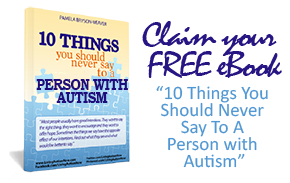There are quite aplenty of feedback that can be gathered nowadays pertaining to the recent World Autism Awareness Day.
Not everything is positive though as there are those who remains to be passive and nonchalant about the whole concept of Autism Spectrum Disorders, a range of complex neuro-developmental disorders characterized by communication difficulties, social impairments, and often restricted, stereotyped, and repetitive behavioral patterns. It is a joy to note though that public awareness is rising via this annual event.
Importance of Autism Awareness
But why raise awareness? You see, heightening the public’s level of understanding on the background and implications of Autism is the very gateway for people to understand what it is like to be living in the spectrum. It is not about telling people what to do but simply, in explaining to them the issues involving ASD and in disseminating useful information to guide them when interacting with an individual who has autism. Awareness, however, should be two-way—public awareness and self-awareness. Self-awareness occurs to both the individual with autism and to the individual’s understanding on how his/her actions or inactions affect another individual who is living autism day by day. General public awareness, on the other hand, tackles widespread acknowledgement and understanding of the issues revolving around autism on a societal level. Both levels of awareness are of utmost importance. By having a common understanding on what ASD is all about can lead to how individuals relate to it in their respective communities. Through autism awareness campaigns, a shared belief and values can become important issues in the community hence, ushering to a wider acceptance level.
Learn how to teach your community about Autism the positive way.
The Road to Autism Acceptance
In human psychology, acceptance is an individual’s assent to reality. It is the very recognition of autism in all its glory and flaws without protesting. It is important to note that up to this day, the road to autism acceptance is bumpy. A lot of controversies continually hound the realm of autism, from vaccines to therapies, treatments, researches, and what-have-you – and this virtually creates a tug-of-war from within hindering the very acceptance it hopes to pursue.
If only we can find that common ground about autism as it is, the level of awareness raised year after year could have pushed a higher level of public acceptance. Not only will this open huge opportunities on autism care, safety, and research but, also in encouraging individuals who are still in the dark to come forward and be heard. Without raising awareness, the drive for autism acceptance will prove to be futile – and vice-versa.




